Here we discuss the vital aspect of maintaining a clean and hygienic environment for pet reptiles to prevent the spread of diseases. Topics such as regular cleaning routines, safe disinfectants, and the handling of waste will be covered. We will also discuss the signs of an unclean habitat and how to rectify the situation.
Maintaining cleanliness in a reptile enclosure is a fundamental part of reptile care – it is an ongoing responsibility that is paramount for the health of the animal. A hygienic environment not only prevents the spread of pathogens and parasites but also contributes to the overall well-being of the reptile. The following outlines the steps and considerations that should be taken to ensure a clean habitat for your reptilian companion.
Daily Cleaning Tasks
Inspection: Begin each day with a visual inspection of the enclosure. Look for and remove faeces, urates (the white, pasty or crystalline urine waste of reptiles), and any uneaten food that may have been left behind. These can harbour bacteria and attract pests if left unattended.
Feeding Dishes: Clean any feeding dishes or bowls used to provide food and water daily. Residue from food can quickly become a breeding ground for bacteria and fungus.
Water Quality: If your reptile’s enclosure includes a water feature or bowl, this should be checked daily. Change the water regularly to ensure it remains clean and fresh, and scrub the bowl with a reptile-safe disinfectant at least once a week.
Weekly Cleaning Tasks
Spot Cleaning of Substrate: Conduct thorough spot cleaning of the substrate at least once a week. During this process, remove soiled or damp substrate, and replace it with fresh material if necessary.
Accessories and Decor: Decorations and hideaways should also be cleaned weekly. These items can be wiped down with a mild reptile-safe disinfectant and rinsed thoroughly to remove any chemical residue.
Disinfection of Food and Water Dishes: Thoroughly clean and disinfect all food and water dishes. Ensure they are completely dry before returning them to the enclosure.
Monthly Cleaning Tasks
- Substrate Replacement: Depending on the substrate used, it may be necessary to completely replace it every month. Loose substrates can be particularly challenging to keep clean and may harbour waste and bacteria if not replaced regularly.
- Full Enclosure Clean: At least once a month, perform a full enclosure clean. This involves removing the reptile to a secure and temporary habitat while cleaning.
- Disassembly: Remove all items from the enclosure, including any substrate, decorations, and climbing structures.
- Cleaning Surfaces: Scrub all surfaces with a reptile-safe cleaner. Pay particular attention to corners and crevices where waste can accumulate. Rinse the enclosure thoroughly with water to ensure no cleaning product residue remains.
- Disinfection: Apply a reptile-safe disinfectant to all surfaces and accessories, following the manufacturer’s instructions for contact time to ensure effectiveness.
- Rinsing and Drying: After disinfecting, rinse all items and the enclosure thoroughly with water to remove any traces of the disinfectant. It is critical that all items are completely dry before they are returned to the enclosure to prevent the growth of mould and bacteria.
Signs of an Unsatisfactory Environment
When it comes to reptile husbandry, you need to be attentive when it comes to their enclosure – not just because they may become unhealthy or die, but so their quality of life is the best it can possibly be. Below are some things to look out for to make sure your reptile companion is living its best life.
Odour: A foul or strong smell emanating from the enclosure is often the first indicator of poor hygiene.
Visible Waste: Accumulation of faeces or food waste is a clear sign that cleaning frequency needs to be increased.
Mould and Mildew: The presence of mould or mildew within the enclosure, particularly in the substrate, is a serious concern that requires immediate attention.
Pest Infestation: The sight of insects or mites indicates that the enclosure is not being kept clean enough.
Health Repercussions from Poor Hygiene
The last thing you or your reptile companion want is a visit to the emergency vet clinic. It’s very easy to avoid that situation with properly maintained enclosures. As long as you are paying attention you can give your animal companion a great life and enjoy it with them.
Skin Infections: Bacteria thriving in dirty enclosures can lead to skin infections in reptiles, evident by sores or abnormal shedding.
Respiratory Infections: Ammonia from decaying waste can irritate the respiratory tract of reptiles, leading to infections with symptoms such as wheezing or excess mucus.
Parasitic Outbreaks: An unclean environment can facilitate the rapid reproduction of parasites, both internal and external, affecting the reptile’s health.
Stress: Dirty or cluttered enclosures can cause stress, which in turn can weaken the reptile’s immune system and make it more susceptible to various diseases.
A disciplined cleaning regimen using reptile-safe products is essential to maintaining a healthy environment for pet reptiles. Frequent cleaning, coupled with thorough monthly disinfection, prevents the buildup of waste and the proliferation of bacteria and parasites. By recognising the signs of an unsanitary habitat, reptile owners can take prompt action to mitigate potential health issues, ensuring their pets remain in optimal condition. For more articles on reptile husbandry, click here.
FAQs
Signs of an unsanitary habitat include foul odours, visible waste accumulation, mould or mildew growth, and pest infestations. These indicate a need to improve your cleaning routine.
Poor hygiene can lead to skin and respiratory infections, parasitic outbreaks, and stress, all of which can significantly impact your reptile’s health and well-being.
It’s best to avoid regular household cleaners as they may contain chemicals harmful to reptiles. Opt for products specifically designed for use in reptile habitats.
Maintaining clean and fresh water is essential to prevent bacterial growth and ensure your reptile stays hydrated and healthy. Change the water daily and clean the water dish with a reptile-safe disinfectant weekly.
Remove and replace the affected substrate immediately. Consider using a different substrate type or improving the enclosure’s ventilation to prevent future occurrences.
Provide a secure and comfortable temporary habitat for your reptile while cleaning the enclosure. This minimises stress and exposure to cleaning products.
Regular cleaning and disinfection, along with prompt removal of waste and uneaten food, are key to preventing pests. Also, inspect new plants or decorations for pests before introducing them to the enclosure.
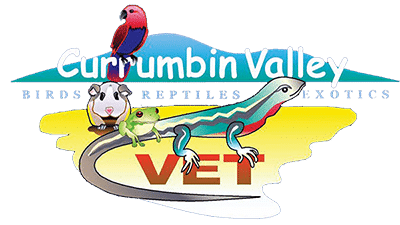
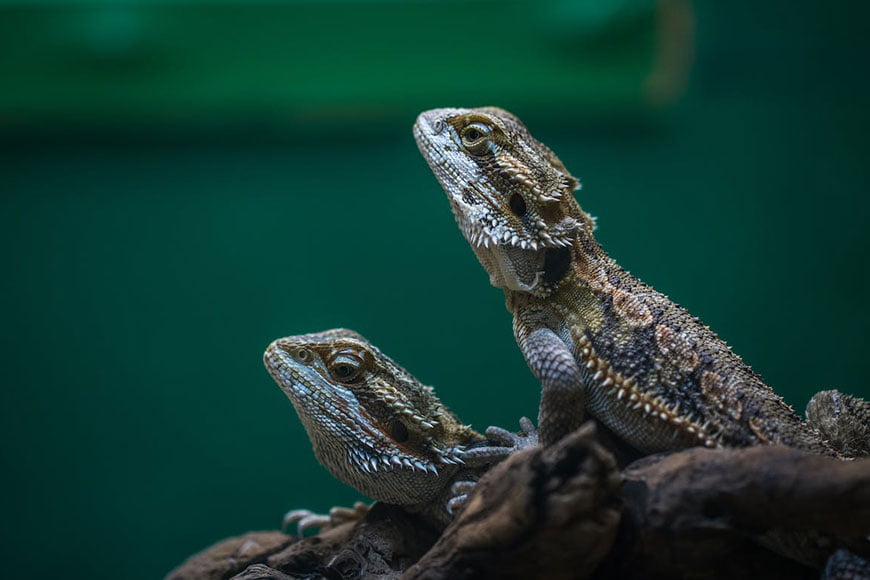

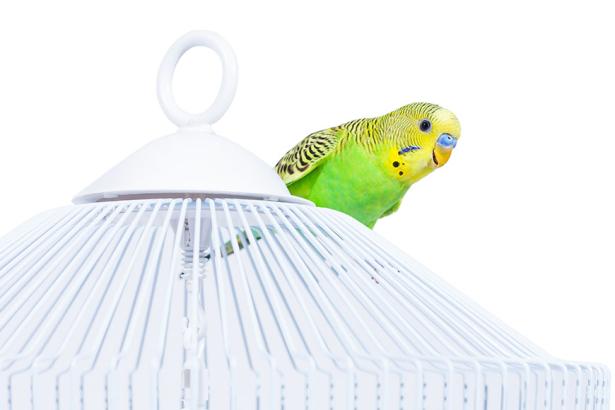
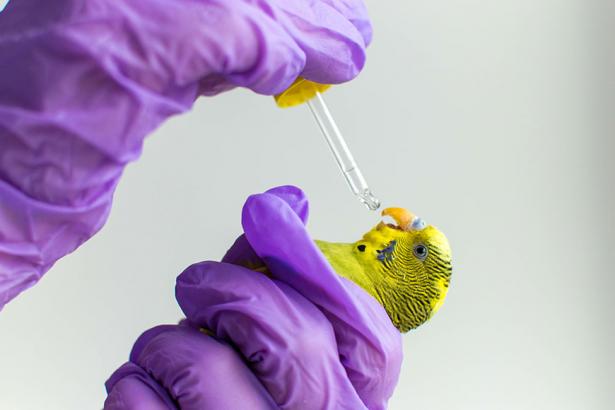
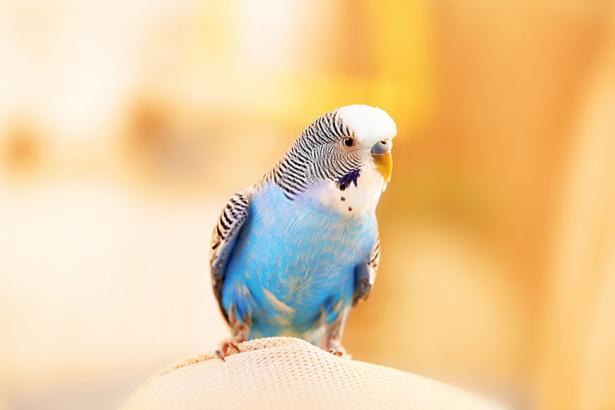
1 Comment
Comments are closed.